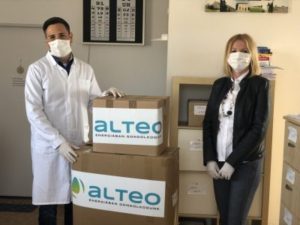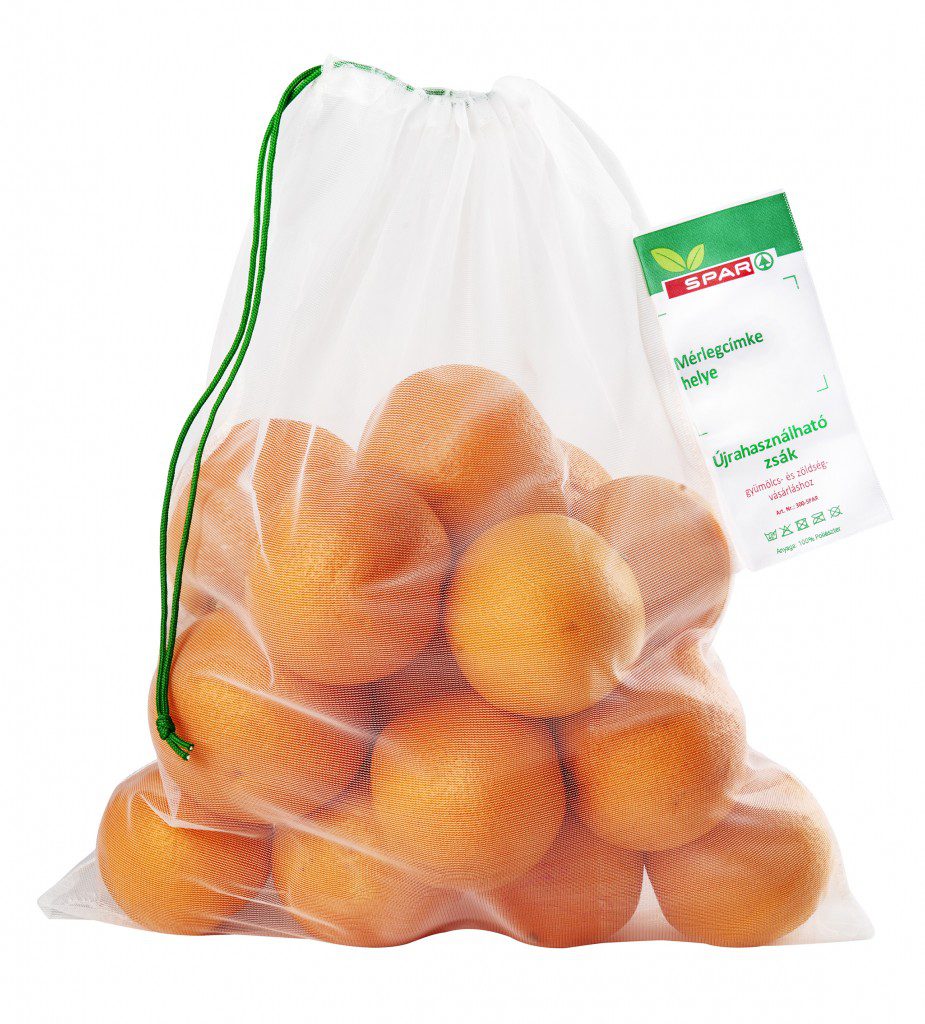17,000 chocolate bars, 10,000 eggs, a tremendous amount of diapers, canned food, and cooking oil – these are just a few examples of the donations Coca-Cola’s regional representatives delivered last week across the country, using company cars. Since the beginning of May 2020, the Coca-Cola HBC Hungary has been helping the Hungarian Red Cross with its fleet and employees since the charitable organization is in a massive need of logistics support to deliver donations in time to the people most affected by the pandemic.
The partnership between the beverage company and the Hungarian Red Cross is becoming stronger by the day. At the beginning of April, Coca-Cola Hungary launched the “Ad to Aid” initiative, offering its advertising spaces and social media channels to the Hungarian Red Cross to help it reach as many people as possible with important public service messages about self-isolation, health protection, blood donation, and charity.
The company also provided financial support in April: The Coca-Cola Foundation, the philanthropic arm of The Coca-Cola Company, donated 200,000 USD (approximately 65 million HUF) to the Hungarian Red Cross, which the Red Cross may use to support people who got in a difficult situation due to the pandemic. As might be expected, Coca-Cola has also donated beverages to the Red Cross: close to 9,000 bottles of water and soft drinks were delivered to the organization before the beginning of May to supply healthcare workers and people in need.
In addition to financial support and beverage donations, another phase of close collaboration started between the company and the charitable organization at the beginning of May. Five of the company’s regional representatives joined the Hungarian Red Cross with company cars to deliver donations from the organization’s regional warehouses to certain target groups: families in need, homeless shelters, mother’s shelters, and hospitals. An additional 16 regional representatives chose to volunteer for the Red Cross in their free time, using Coca-Cola’s equipment and resources.
“As Hungary’s leading beverage company, it was obvious for us to offer our products to the organization and people in need. By now, we have delivered donations worth around 14 million forints to 16 hospitals and 3 NGOs. We immediately realized when the outbreak started that providing water, juices, and other beverages we produce is an effective way to help,” said László Békefi, General Manager of Coca-Cola HBC Hungary. “The health and wellbeing of our employees is our highest priority, and one of our main goal is to ensure work for all of them in these difficult and challenging times. Closing the HoReCa outlets put us in an unusual situation, providing us with the opportunity to reallocate some of our regional managers to the Hungarian Red Cross’s logistics work, so they can use this time beneficially. Needless to say, Coca-Cola is providing them with the required equipment.”
The five regional representatives support the Hungarian Red Cross’s work in and around Budapest, Kaposvár, Mályi, Szeged, and Veszprém. They have various tasks: delivering cooked food to elder people, loading and delivering cooking oil, chocolate, and canned food to mothers’ and homeless shelters, and hospitals. Furthermore, they are taking disinfectants and textile masks to where there is a shortage of those.
“Our collaboration with Coca-Cola started 10 years ago. They have provided a supply of water, soft drink, and juice to all of our nationwide programs, and they have become our strategic partner during the years. The most beautiful event in the course of our collaboration was when they supplied water to our colleagues and volunteers who were working on the dams during the floods. Our partnership is based on three pillars right now: significant financial aid, the spreading of our messages via all of their communication channels, and logistics support. With the active involvement of Coca-Cola’s employees on every front of course. Their help means a lot, especially now, it is the most effective way they can support people in need!” said Diána Török, head of corporate relations and donation management at the Hungarian Red Cross.



 of daily operation practice during the implementation of planned developments – the current crisis situation proved us right.
of daily operation practice during the implementation of planned developments – the current crisis situation proved us right. tainability strategy of SPAR is leaving the plastic caps from the packaging of the own brand 1 litre S-Budget 1,5% and 2,8% UHT milks. The company reduces by this environmentally friendly measure the used plastic volume with more than 6.7 tonnes in terms of annual turnover. The environmental burdens can be alleviated with the very significant reduction, while the products continue to guarantee the usual quality, durability and taste.
tainability strategy of SPAR is leaving the plastic caps from the packaging of the own brand 1 litre S-Budget 1,5% and 2,8% UHT milks. The company reduces by this environmentally friendly measure the used plastic volume with more than 6.7 tonnes in terms of annual turnover. The environmental burdens can be alleviated with the very significant reduction, while the products continue to guarantee the usual quality, durability and taste. ackaging of the 3-piece sweet pepper and hot pepper. Knowing the last year’s numbers, the switch to the 100% degradable packaging means for the former product 660, while for the latter product 1015 kilograms of plastic saving.
ackaging of the 3-piece sweet pepper and hot pepper. Knowing the last year’s numbers, the switch to the 100% degradable packaging means for the former product 660, while for the latter product 1015 kilograms of plastic saving.

